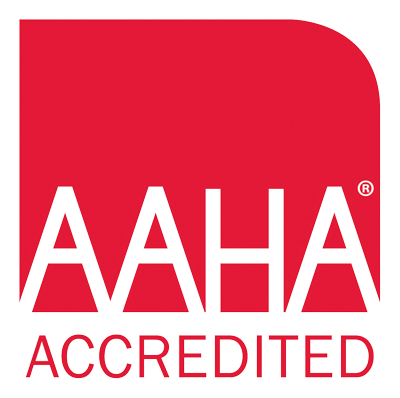Surgical Services
Orchard Road Animal Hospital has five exceptional doctors that are available Tuesday through Friday for surgery. They commonly perform spays, neuters, growth removals, and other surgeries that can significantly extend your pet's life!
What makes us different?
Each patient is very specific with a unique set of requirements before undergoing anesthesia or surgery of any kind. We take the time to run extensive bloodwork and diagnostic tests to make sure your pet is fit and healthy enough to undergo surgery safely and successfully. Even the most routine procedures are treated with care and caution. Each patient during surgery receives the care of two veterinary technicians. One technician physically monitors the patient along with extensive mechanical monitoring devices to ensure the patient is handling the anesthesia and the procedure well. The second technician is responsible for prepping the patient before surgery and retrieving supplies as needed for the surgeon in charge. Before each surgery the doctor studies the patients' case and determines the safest course of action for sedation drugs as well as the procedure itself. No surgery will be performed if diagnostic tests have come back negative, or if any health conditions raise cause for concern for going under anesthesia.
Ovariohysterectomy (Spay)

An ovariohysterectomy, also referred to as a spay, is a major abdominal surgery done under general anesthesia. The uterus and ovaries are removed during this procedure. The surgery patient usually goes home the same day of surgery and normally does not need to return for a recheck appointment or to have sutures removed.
There are many benefits to spaying your pet. There is no worry of unwanted offspring or false pregnancies. After the procedure is done, there are no heat cycles. Spaying eliminates the possibility of life threatening uterine infections. If done early, it significantly decreases incidence of mammary tumors.
Wondering when to spay your pet?
 The patient must be healthy and at least 6 months old, preferably less than 1 year old. She must also be current on both Rabies and Distemper vaccines. It is best to have the surgery performed before the first heat cycle. For patients that have already started their heat cycles, surgery can be performed 12 weeks after the last cycle. This is for the safety of the patient. Please call (630)844-0100 for more information.
The patient must be healthy and at least 6 months old, preferably less than 1 year old. She must also be current on both Rabies and Distemper vaccines. It is best to have the surgery performed before the first heat cycle. For patients that have already started their heat cycles, surgery can be performed 12 weeks after the last cycle. This is for the safety of the patient. Please call (630)844-0100 for more information.
Castration (Neuter)
A castration is a semi-major surgery in dogs, requiring general anesthesia. In cats, a castration is a minor surgery requiring IV sedation. In both dogs and cats, both testicles are removed. Your pet is usually able to go home the same day of surgery and normally does not need to return to have sutures removed.

There are many benefits to castration. Your pet becomes sterile and can no longer reproduce. It can decrease the tendency to mark territories by urinating and the tendency of "riding". Pets generally can become less aggressive, but there are never any guarantees. Castration eliminates prostate disease and many types of perianal tumors. It can also decrease the pet`s tendency to "roam" searching for females in heat. In cats, it eliminates the typical "Tom Cat" urine odor and marking if castrated as a young cat.
Dogs can be neutered at 6 months of age. Cats can be neutered at 3 months or when they weigh 3 pounds. Your pet must be current on both Rabies and Distemper vaccines. Please call (630)451-8459 for more information.
Facts:
- There is no benefit for your pet in allowing them to go through a heat cycle or to have a litter.
- Spaying or castrating your pet will not make them fat or lazy.
- Dietary needs decrease at puberty whether or not your pet is altered.
- Obesity results from over feeding, over eating and lack of exercise.
- Surgery is NOT a cure-all for behavioral problems. Pets that are high-strung, overly active or vicious will continue to be that way.
- Your pet WILL be given pain medication both during and after their surgery. This is not an option and is included in the spay and castration charges.
Laser Surgery
Laser technology has been helping doctors to safely and effectively treat patients for more than 20 years. Orchard Road Animal Hospital has added the latest technology CO2 (carbon dioxide) laser to our practice to provide the best quality care for our client's pet.
Laser surgery is now an option for the safe and comfortable treatment of your pet. In many procedures, the laser can replace the scalpel and provide a gentler and better alternative to traditional surgery. Laser surgery can correct many common conditions such as cysts, tumors, warts and infections around the eyes, ears, mouth or anywhere on the skin. Specialized internal procedures are also possible.
With laser surgery pets experience less pain, less swelling and less bleeding, and will heal more quickly, returning to normal activities and the home environment sooner.
 The most commonly used surgical laser is a carbon dioxide laser which produces an invisible beam of intense light that vaporizes the water normally found in the skin and other soft tissue. Because the veterinarian can precisely control the laser, only a thin layer of tissue is removed, leaving the surrounding area unaffected.
The most commonly used surgical laser is a carbon dioxide laser which produces an invisible beam of intense light that vaporizes the water normally found in the skin and other soft tissue. Because the veterinarian can precisely control the laser, only a thin layer of tissue is removed, leaving the surrounding area unaffected.
Locally, Orchard Road Animal Hospital offers veterinary laser surgery for pets with a variety of clinical conditions. Dr. Flieg, Dr. Distajo, Dr. Huffman, and Dr. Kennedy have been trained extensively in the use of the laser, and can discuss a number of interesting cases.
Additional information can be obtained by visiting www.petlasers.com.
Interested in surgical assistance?
Contact us at 630-451-8459 to learn more!


